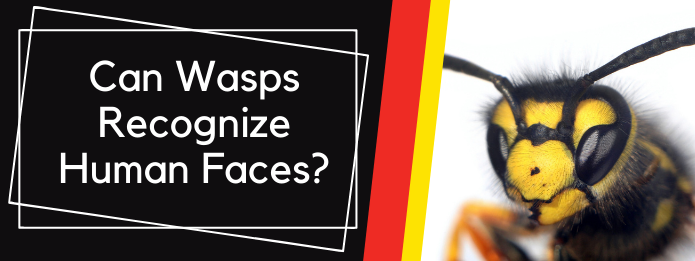Can Wasps Recognize Human Faces?

Before you become aggressive towards a wasp, you better think twice. That wasp may be able to recognize your face and come after you if it sees you again! While it may sound like something out of an old sci-fi movie, a new study suggests that the brains of wasps can process faces all at once. This is similar to how human facial recognition works.
Our local Truly Nolen technicians are well-trained on how to deal with wasps and the problems they can present to homeowners. If you have a wasp nest on your property, the best plan to protect your family is by being proactive.
The Facial Recognition Study
The study from the University of Michigan devised a facial recognition test for golden paper wasps. It included two faces to compare. The insects were trained to learn that one of the two faces was a “bad guy.” Each wasp was placed inside a tiny box with pictures of the “bad” face on all the walls for the training. The floor of the box delivered mild electric shocks to the wall, which caused discomfort.
The wasps were placed in another box for the control training session with the “good” face placed around but with no shocks.
Wasps were transferred to a slightly bigger box with the good face at one end and the bad face at the other for the test itself. As researchers released the wasps into this box, they watched which face the wasp approached. As expected, the wasps tended to head straight for the good guy.
Researchers were interested to learn that when the pictures of the good and bad guy showed just part of the face, the wasps no longer routinely headed straight for the good guy. This showed signs that they needed to see the facial markings in the context of a whole face which suggests they use holistic face processing.
The Wasp Brain
These findings come despite the tiny size of the insect’s brains. Compared with the human brain, which is made up of 86,000 million brain cells, theirs contain fewer than one million brain cells.
Previous research has shown that paper wasps can also learn the faces of other wasps. They appeared to have evolved specialized brain mechanisms for wasp face processing. Overall, they are very intelligent insects, and more research is needed to clarify what impact this has on humans.
Important to the Ecosystem
Everyone knows how important bees are to the ecosystem, but what many people don’t realize is that wasps can be just as valuable as bees. Without wasps, the world could be overrun with insects and spiders. Known as a gardener’s friend, they are able to capture millions of kilograms of insect prey each summer, including caterpillars and greenflies.
Wasps can also become accidental pollinators when on the hunt for nectar by travelling from plant to plant carrying pollen. Their contribution to pollination may not be as substantial as bees, but they still play a valuable part.
What do Wasps eat?
Although they are known for killing many insects, they don’t actually eat the prey they kill. They feed it to their young. Social species chop up the insects and carry parts back to their nest. Adult wasps, both social and solitary, only feed on sugars from flower nectar and honeydew. Wasp larvae also produce a sugary liquid that the adults consume.
Although they are an important part of the ecosystem, you still don’t want wasps making nests around your home. To keep your family safe, contact Truly Nolen’s pest control in Bridgewater, Halifax, and Truro. Our wasp removal experts will come to your property and assess the situation. We can remove any nests around your property and help to prevent any in the future. Contact us today!